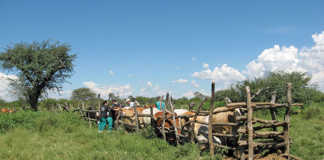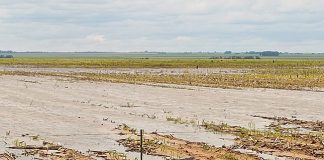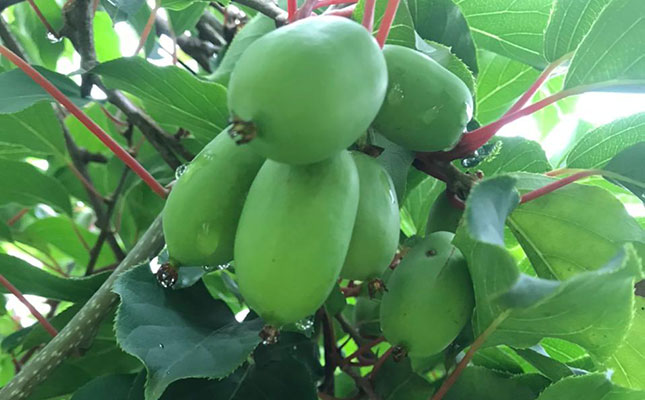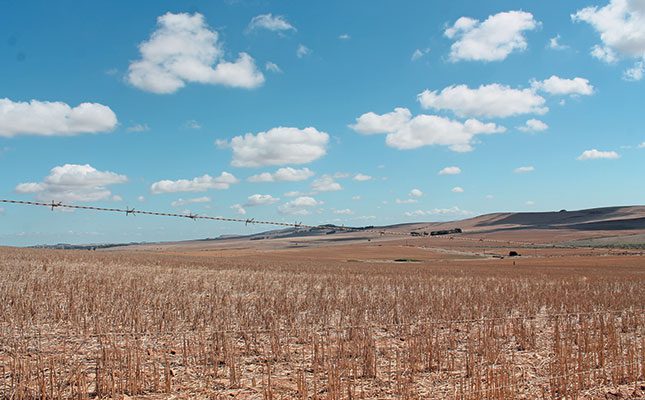
Ipeleng Kwadi, cattle farmer and mentor in North West and chairperson of Youth in Agriculture and Rural Development Organisation (YARD)
Compared to reflections on previous years, 2023 was a difficult year, but not without its highlights. Rising fuel costs had a negative impact on our daily operations. 
The North West Department of Agriculture donated a Bonsmara stud bull to my business so that I could develop my herd further, but eight weeks later it died from heartwater. The experience taught me a lot about the importance of treating animals that come from heartwater-free areas.
Fortunately, the bull was put to good use before it died and my cows are currently calving with that bull’s offspring.
This year I saw first hand how important it is to network, and how the media can play a role in linking farmers to markets. I took part in several panel discussions at events where I had the opportunity to engage with decision-makers in the industry and also bring private stakeholders closer to farmers.
I was fortunate to be among a team from the Agricultural Research Council doing research on how climate change is affecting farmers and coming up with mitigation practices. This was a big highlight as I was not only able to contribute much from a cattle farmer’s point of view, but learnt a lot too.
At YARD, we managed to launch branches in another eight provinces with the same vision of being the voice for young people who are on the ground, creating opportunities for them in the mainstream economy, and being part of policy and decision-making in the agriculture sector. I am looking forward to launching our national structure early next year.
Ben Otukile, owner of Otukiles Bonsmara stud and cattle farm in North West 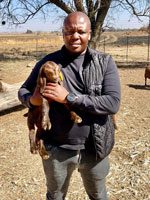
Looking back over the past 15 years I have spent farming, 2023 was by far the most interesting. On the grain side, the challenges started early on when heatwaves in January led to a reduced maize yield. The continuous load-sheddding, fuel increases and low prices for our harvest made for an unpleasant start to the year.
This has been compounded by the lack of rain at the start of the planting season in spring. In Lichtenburg we usually start planting around 20 November, but we could only get started on 12 December due to the late rain. So it was a tough year on the crop side.
The livestock side fared far better. I registered my stud and over 90% of my cows were registered at SA Stud Book. I also registered my Kalahari Red goats. The long dry season and a veld fire that consumed 50ha of grazing did push up the feeding costs, but we are still alive and continuing farming, so that is something to be positive about.
Achmat Brinkhuis, owner of Chamomile Boerdery in the Western Cape
It was a tumultuous year in the poultry industry with the outbreak of bird flu. To say that there were devastating consequences for the industry is an understatement. The industry suffered massive losses and many big companies came close to closing their doors.
Small-scale farmers were even worse off, and the surrounding communities, as bird flu has a chain reaction. People lose their jobs and families go hungry when farms and businesses close down.
But we as South African farmers are strong and resilient. Our farmers are world class and I believe that the industry as a whole will survive this crisis.
For the year ahead, my hope is that government will work more closely with small-scale farmers to assist them in starting operations and remaining afloat. The entry level costs have skyrocketed significantly, and if farmers don’t keep up with technology, they are left behind.
The partnership between the small farmer, their mentor and government is therefore very important to ensure new farmers are established and get the right advice.
Sophy Litshani Musabeni, owner of Vhegies in Gauteng
My biggest highlight for the year was receiving a tractor and cold room facilities. I was also able to plant 25ha of vegetables to supply my customers all year round. I also received numerous awards where my hard work was recognised.
The lowest point was the rising input costs and the effects of climate change on my farm. Although it affected my margins, I believe that by expanding production I will have a better chance to mitigate these challenges. Next year, I am looking forward to adding value to my produce to supply the range of customers I have already procured. My long-term goal is to expand production to 300ha.
Phiwokuhle Shabangu, director of Mokoka Shabangu Farming and Poultry in Gauteng 
The year was quite a roller coaster for me as I was busy with an application for funding for 10 chicken houses, which was quite a daunting task. The highlight came when I received funding approval from the Industrial Development Corporation.
In the new year, I’m looking forward to the construction project, seeing all 10 houses completed, and the day that we place our first 450 000 day-old chicks in the houses and start operating.
Org Lindeque, macadamia farmer at Anro Boerdery, Mpumalanga
Without a doubt the low point of the year was the low macadamia nut prices. It was a very challenging year for macadamia farmers, as this is the lowest I have seen prices fall in 18 years of being a macadamia farmer. Rising input costs such as diesel, labour costs and power contributed to the pressure felt by macadamia farmers. 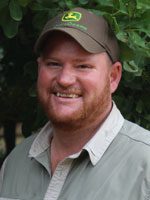
The upside was that input and fertiliser prices were quite stable. For me it was very rewarding to work with the right people in terms of who I delivered nuts to, and who supplied me with chemicals, fertilisers and diesel at the best prices and good value for money.
Probably the biggest highlight was the record harvest I had on my farm, and the good quality and high crackouts. This at least softened the blow from the low overall prices.
For 2024, I am most looking forward to an increase in the prices and the production of even better quality nuts. I am confident that 2024 will be a better year than 2023.
Challenges aside, I still remain grateful to my Heavenly Father who gives me the opportunity to be able to farm, because no matter what goes wrong, it’s still damn good to farm!
Nicolas Balcomb, blueberry farmer in the Western Cape and Mpumalanga
Rising input costs were challenging, which included load-shedding mitigation and wage increases. Berry farming is very labour intensive and we are forced to put extreme productivity measures in place to make the business feasible. 
From a production point of view we had a bad year as two flood events damaged parts of the crop. But prices made up for losses as export prices were on average 80% higher than the previous year.
This was mainly due to the weakened rand, and high demand due to a short-supplied market as crops in Peru and Chile were down. South African farmers rose to the challenge of supplying outstanding quality fruit to export markets, which hopefully cemented a solid portion of this market share in each region.










